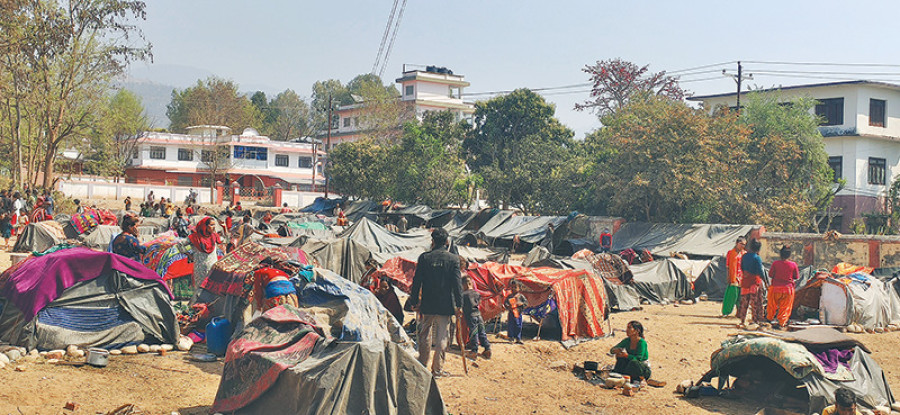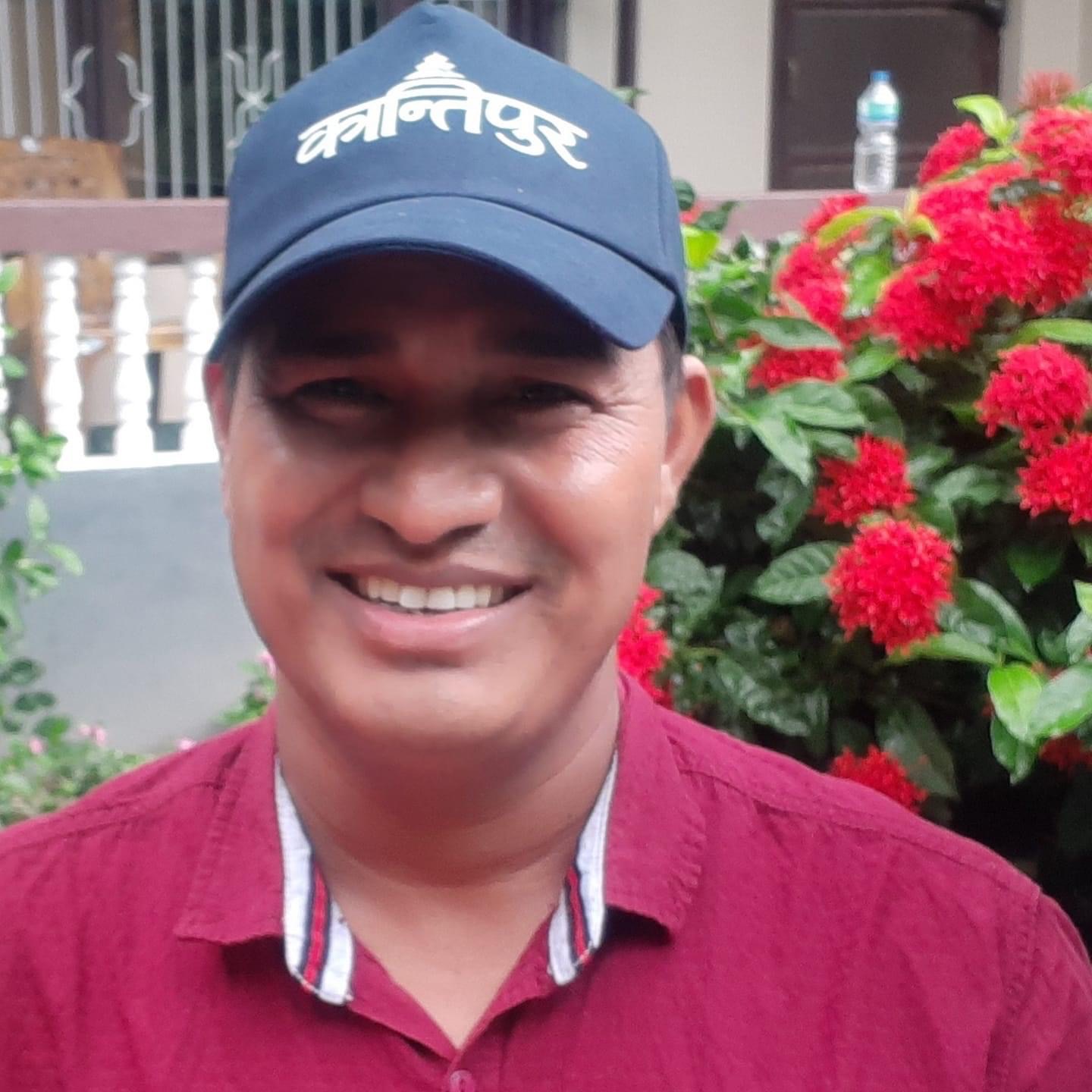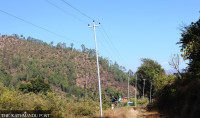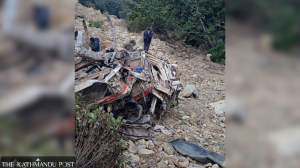Karnali Province
Badi people’s sit-in continues for two weeks
Around 400 people of the Badi community have come to Surkhet for the protest, demanding land plots.
Kalendra Sejuwal
For the past two weeks, people from the Badi community have been staging a sit-in in front of the Office of Chief Minister and Council of Ministers in Birendranagar demanding land plots for housing and cultivation purposes. But the authorities concerned have paid no heed to their demands.
Around 400 people of the Badi community from Surkhet, Dailekh, Kalikot and Jajarkot districts have come to Surkhet to stage a sit-in and demand for land plots.
“The provincial government has already said that providing land is not under its jurisdiction. And our voice has not yet reached the federal government,” said Prem Badi, the chairman of Badi Rights Struggle Committee. “We have not slept well or eaten full meals since we arrived here. It is still uncertain how long we’ll be staying here.”
The Badi community is one of the most deprived and marginalised groups in Nepal. According to the National Census conducted in 2011, there are 38,603 Badis living across the country—less than one percent of Nepal’s total population.
As per a book published last year named Identity and Status of Badi Community, around 43 percent of Badi people do not possess land of their own while many of the remaining 57 percent live on public land. The book also says around 75 percent of Badi people can barely manage food for themselves.
The protesting Badi people submitted separate memorandums to the provincial government and federal government through the Chief District Office of Surkhet on February 24, demanding that the authorities provide 15 kathas of land for a five-member Badi family who does not have land.
“I have never owned land in my life. I came here to take part in the sit-in so that my children and grandchildren can have their own land,” said Moti Badi of Manma in Kalikot. “But the government never listens to our problem.”
The Badi community has been struggling for a long time in Nepal. In 2005, the Supreme Court had ordered the government to provide birth registration and citizenship certificates to Badi children. However, a delay in the implementation of the Court’s decision led to a series of protests in Kathmandu two years later.
In 2007, more than 500 members of the Badi community from 23 districts staged a demonstration in front of Singha Durbar in Kathmandu. The protests subsequently paved the way for the rehabilitation and social integration of the Badi people. Bowing to pressure from the protesters, the government had signed a 26-point agreement with the agitating community.
On January 7, 2009, the Cabinet decided to rehabilitate the Badi community by giving them land and providing them with income-generating skills. The government’s objective was to end poverty in the community and help its women to be free from prostitution with other financially rewarding options.
“But until now, the promises made by the government have not been addressed. Even today, the Badi people have to live with the same hardships. This is why we started this protest,” said Hikmat Badi, coordinator of the Badi Struggle Committee.
This time, 82 school-going Badi children have also participated in the ongoing sit-in. The children along with their parents are taking shelter in flimsy huts.
Gauri Badi, whose children are part of the sit-in, said that she is worried about her children’s studies.
“My eight-year-old daughter has not gone to school due to the protest,” she said. “We can barely manage two square meals a day for our family now. On top of that, I have to worry about her studies.”
Life in the makeshift tents is not easy, says Prem Badi, chairman of Badi Rights Struggle Committee.
“Children, women and senior citizens are affected the most by the current living situation,” he said. “Even the tents are not sufficient for everybody. Many are sleeping under the open sky with empty stomachs.”
Meanwhile, Chief District Officer of Surkhet Chhabilal Rijal said a memorandum submitted by the representatives of the Badi community has been forwarded to the Ministry of Home Affairs for hearing.
“The local administration has informed the Badi people that their demands will be addressed by the Land Problems Resolution Commission,” Rijal said. “The commission is collecting data on landless people through the local units. Badi people should also be included in the list.”




 13.12°C Kathmandu
13.12°C Kathmandu












